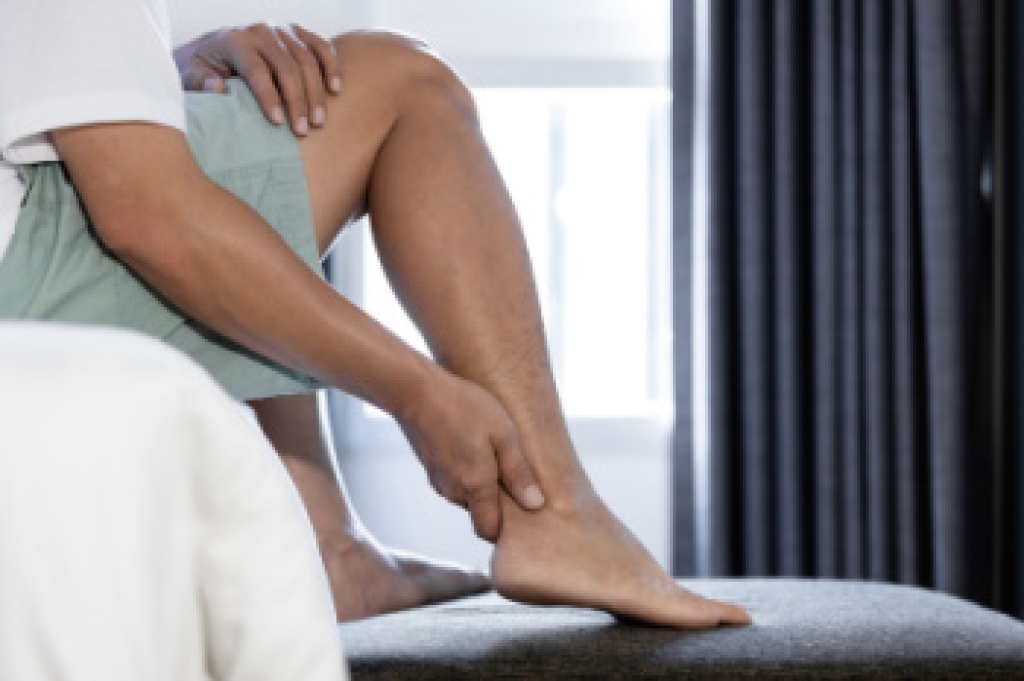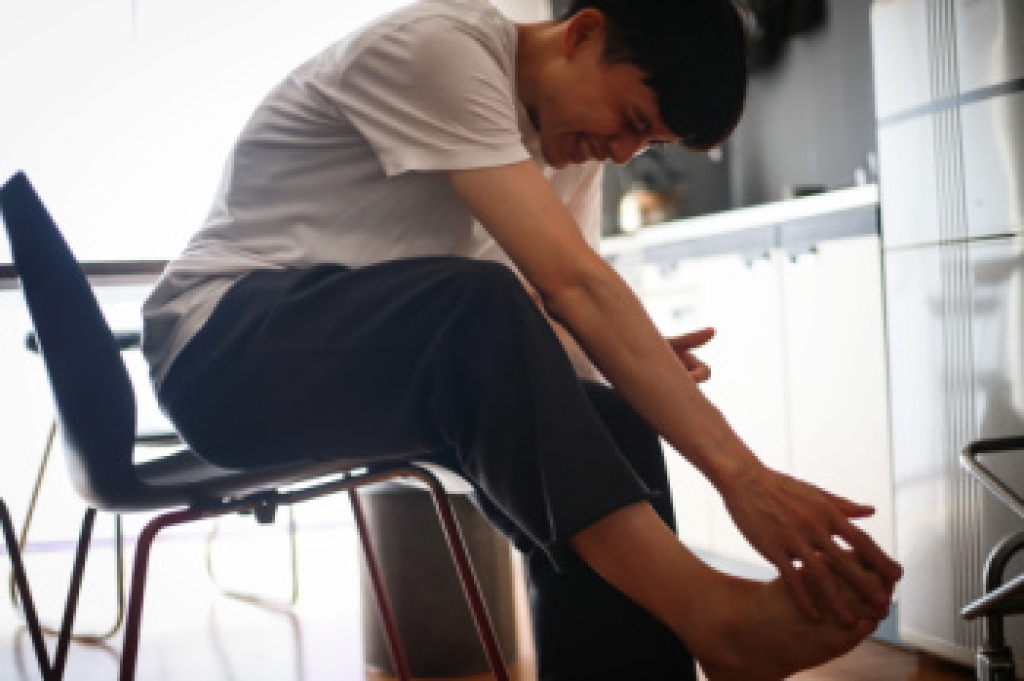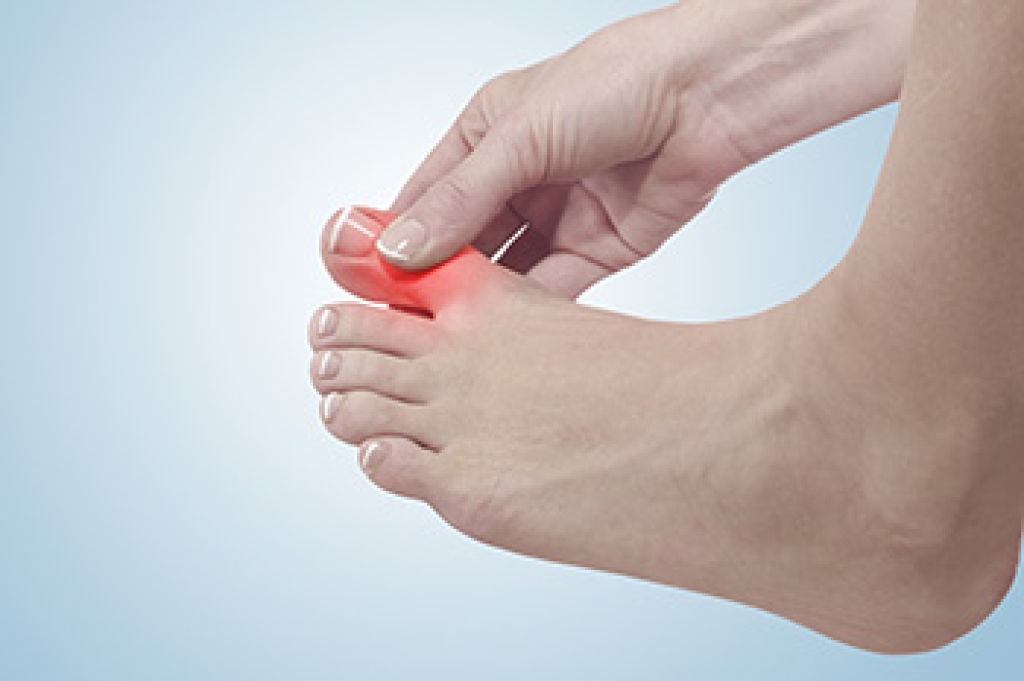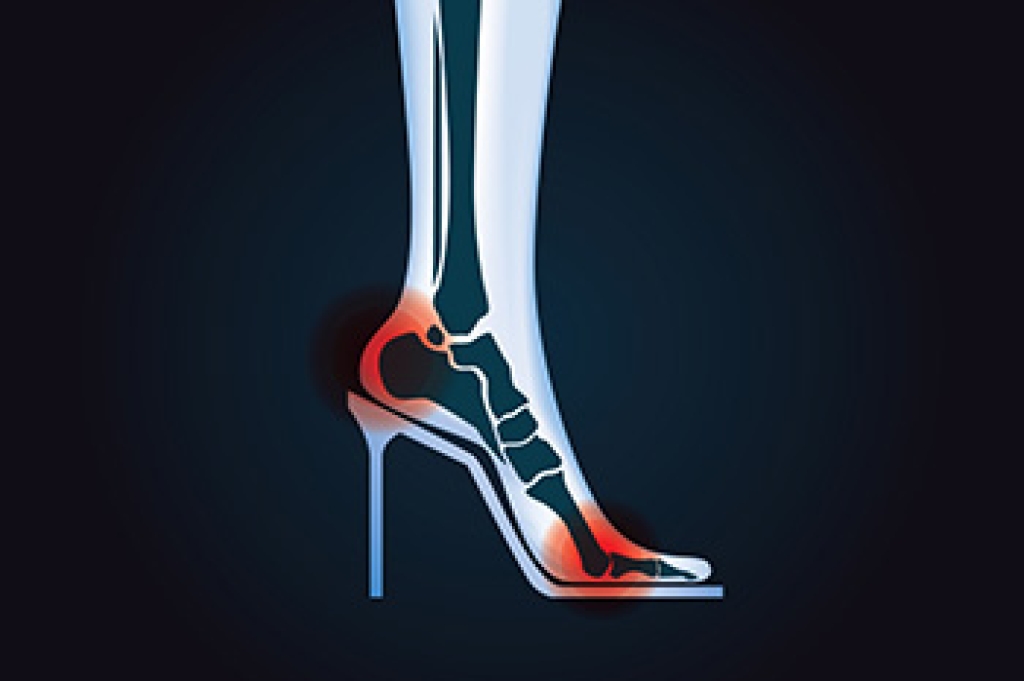
The Achilles tendon connects the calf muscles to the heel and helps the foot move when walking, running, and jumping. Injuries to this strong tendon can range from mild to severe. One type involves soreness and stiffness that develop over time from repeated strain. It is often felt either along the tendon or where it attaches to the heel. Another type of Achilles tendon injury causes swelling and pain around the tendon due to irritation from overuse. Small tears to the Achilles tendon can occur when some fibers are damaged, leading to weakness and ongoing discomfort. A more serious injury, common among athletes, happens when the tendon tears completely. This injury often causes sudden pain and difficulty pushing off the foot or standing on tiptoe. A podiatrist can determine the type and severity of the injury and recommend appropriate treatment, which may include activity changes, support devices, or surgery. If you have injured your Achilles tendon, it is suggested that you make an appointment with a podiatrist for an exam, diagnosis, and treatment.
Achilles tendon injuries need immediate attention to avoid future complications. If you have any concerns, contact one of our podiatrists of Apple Podiatry Group. Our doctors can provide the care you need to keep you pain-free and on your feet.
What Is the Achilles Tendon?
The Achilles tendon is a tendon that connects the lower leg muscles and calf to the heel of the foot. It is the strongest tendon in the human body and is essential for making movement possible. Because this tendon is such an integral part of the body, any injuries to it can create immense difficulties and should immediately be presented to a doctor.
What Are the Symptoms of an Achilles Tendon Injury?
There are various types of injuries that can affect the Achilles tendon. The two most common injuries are Achilles tendinitis and ruptures of the tendon.
Achilles Tendinitis Symptoms
- Inflammation
- Dull to severe pain
- Increased blood flow to the tendon
- Thickening of the tendon
Rupture Symptoms
- Extreme pain and swelling in the foot
- Total immobility
Treatment and Prevention
Achilles tendon injuries are diagnosed by a thorough physical evaluation, which can include an MRI. Treatment involves rest, physical therapy, and in some cases, surgery. However, various preventative measures can be taken to avoid these injuries, such as:
- Thorough stretching of the tendon before and after exercise
- Strengthening exercises like calf raises, squats, leg curls, leg extensions, leg raises, lunges, and leg presses
If you have any questions please feel free to contact our offices located in Arlington Fort Worth, And Flower Mound, TX . We offer the newest diagnostic tools and technology to treat your foot and ankle needs.



